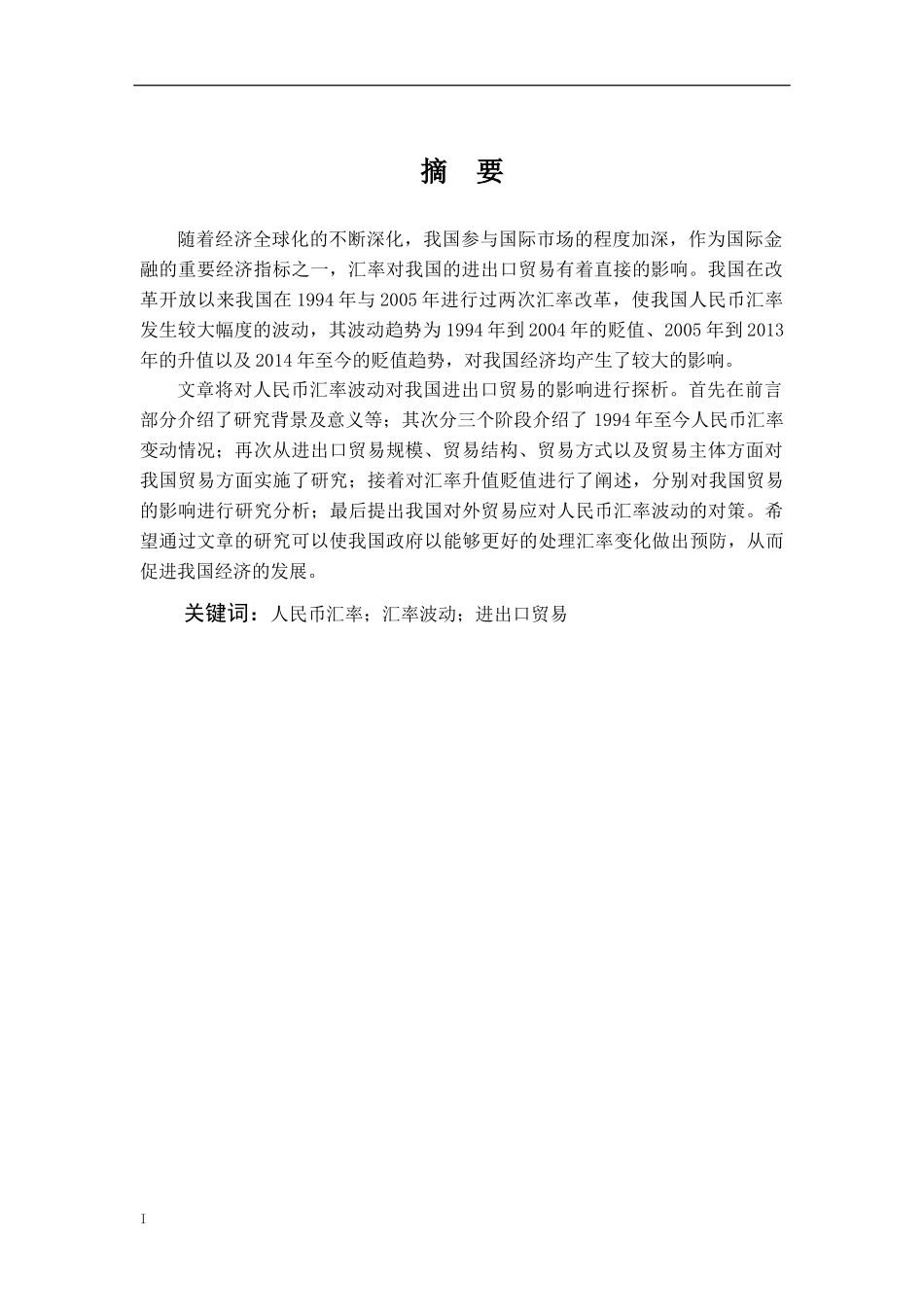I摘 要随着经济全球化的不断深化,我国参与国际市场的程度加深,作为国际金融的重要经济指标之一,汇率对我国的进出口贸易有着直接的影响。我国在改革开放以来我国在 1994 年与 2005 年进行过两次汇率改革,使我国人民币汇率发生较大幅度的波动,其波动趋势为 1994 年到 2004 年的贬值、2005 年到 2013年的升值以及 2014 年至今的贬值趋势,对我国经济均产生了较大的影响。文章将对人民币汇率波动对我国进出口贸易的影响进行探析。首先在前言部分介绍了研究背景及意义等;其次分三个阶段介绍了 1994 年至今人民币汇率变动情况;再次从进出口贸易规模、贸易结构、贸易方式以及贸易主体方面对我国贸易方面实施了研究;接着对汇率升值贬值进行了阐述,分别对我国贸易的影响进行研究分析;最后提出我国对外贸易应对人民币汇率波动的对策。希望通过文章的研究可以使我国政府以能够更好的处理汇率变化做出预防,从而促进我国经济的发展。关键词:人民币汇率;汇率波动;进出口贸易IIAbstractWith the deepening of economic globalization and the deepening of China's participation in the international market, as one of the important economic indicators of international finance, the exchange rate has a direct impact on China's import and export trade. Since China's reform and opening up, China has carried out two exchange rate reforms in 1994 and 2005, which has caused the RMB exchange rate to fluctuate greatly. The fluctuation trend is from 1994 to 2004, the appreciation from 2005 to 2013 and the depreciation trend from 2014 to now, which has a great impact on our economy.This paper will analyze the impact of RMB exchange rate fluctuation on China's import and export trade. Firstly, the research background and significance are introduced in the foreword; secondly, the change of RMB exchange rate from 1994 to present is introduced in three stages; secondly, the research is carried out on China's trade from the aspects of import and export trade scale, trade structure, trade K...


